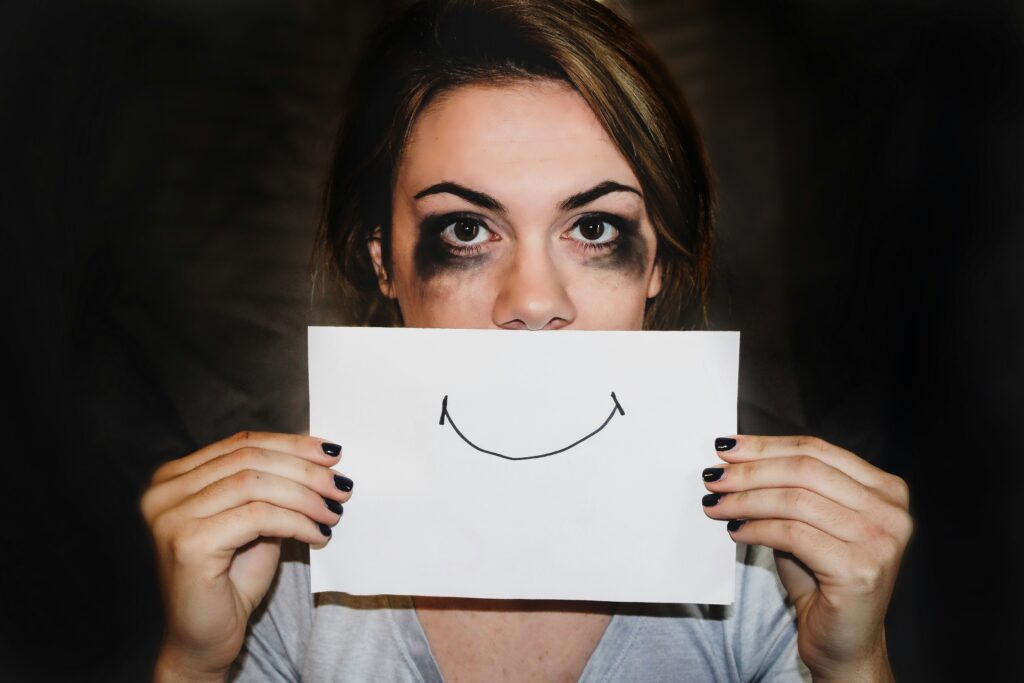Warning: This article will discuss topics including mental illnesses and complex trauma that may be triggering for some individuals. Please read at your own discretion.
If you want to learn how social media makes us feel ugly, read the blog post here.

Photo by Sydney Sims on Unsplash
Introduction
In today’s media, the portrayal of mental health disorders significantly affects public perception. Too often, these portrayals are inaccurate and are filled with stereotypes, which further perpetuates stigma. In this blog post, we’ll unmask mental health portrayals in media and delve into the importance of accurate mental health representation. We will also explore the transformative impact of highlighting personal narratives from people who live with mental disorders.
Mental Health Portrayals in Media
Media representations often perpetuate stereotypes about mental health conditions, contributing to stigma and misunderstanding.

Photo by Sander Sammy on Unsplash
For example, people with schizophrenia are frequently depicted as violent criminals. Research suggests that people with schizophrenia are more likely to be victims of violence than perpetrators. This portrayal fuels fear and discrimination and overshadows the reality that most people with schizophrenia.

Photo by Lance Reis on Unsplash
Unmasking the Myths
But it’s not all bleak. Across various forms of media, there are authentic and nuanced representations of people living with mental health conditions. By showcasing people with lived experiences, we can debunk common myths about mental illness. Additionally, we can slowly remove the stigma of mental illness and become more understanding of each other.
The Power of Personal Narratives: Highlighting People Sharing Their Experiences with Mental Health
Education and Awareness
Lauren, a mental health advocate who goes by Living Well with Schizophrenia on YouTube, educates people about schizophrenia and schizoaffective disorder. Lauren shared her story living with schizophrenia/schizoaffective disorder and provided a follow-up video three years later. By sharing her experiences living with schizoaffective disorder, Lauren sheds light on the challenges and impacts of the disorder in her life. Additionally, her educational content raises awareness, and contributes to a more informed and compassionate society.
Jessica McCabe offers useful tips on living with ADHD and educating people about the disorder through her YouTube channel. One of the core symptoms of ADHD is having trouble managing impulse control. Jessica openly shares her experience of having difficulty managing her impulsiveness, especially when it comes to saying things without thinking about how other people would react to her words. Jessica mixes her personal experiences along with medical expertise to help people better understand ADHD, whether they have it or not.
Overall, Lauren and Jessica provide educational content that creates a more compassionate society for those living with schizophrenia and ADHD.
Destigmatizing Through Personal Narratives

Photo of Stephanie Foo Credits: Stephanie Foo
Stephanie Foo, a former radio producer for This American Life, published a memoir titled “What My Bones Know”, which explores her journey healing from complex PTSD. Although her life at the time looked successful on paper, she was suffering from panic attacks at work and experiencing difficulties with her relationships with her boyfriend and friends.
When she learned that she has complex PTSD in 2018, she gained a better understanding of how surviving an abusive childhood affected her relationships, career, and health. From there, Stephanie was determined to heal from her mental illness and read tons of books about her condition. Upon reading books like “The Body Keeps the Score” by Bessel van der Kolk, she felt pathologized and misunderstood.
To heal, she explored various therapeutic methods like EMDR Therapy and returned to her hometown, San Jose (Foo 149), to uncover family secrets and investigate the effects of trauma inherited from several generations inherited from her family. Throughout the memoir, she provides a nuanced understanding of the condition by speaking to medical experts and writing about her personal experiences. Through her courageous honesty, Stephanie helps to break down barriers and foster greater acceptance within society.
The Power of Accurate Representation
Accurate mental health representation has the power to educate, challenge misconceptions, and foster empathy. When media portrays mental health issues realistically, it humanizes those who struggle, allowing audiences to see beyond the illness and connect with the person behind it. This can lead to greater understanding, support, and ultimately, positive change.
Conclusion
Overall, the voices of those living with mental health conditions are powerful agents of change in the ongoing conversation about mental health in media and society. By amplifying their stories, we can inspire, destigmatize, educate, promote supportive communities, and advocate for a world where mental health is valued, understood, and supported for all. Let’s challenge media creators to prioritize accurate representation and collectively strive for a more inclusive and empathetic society.